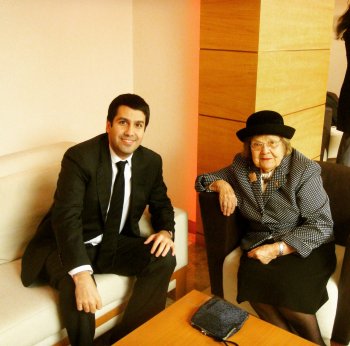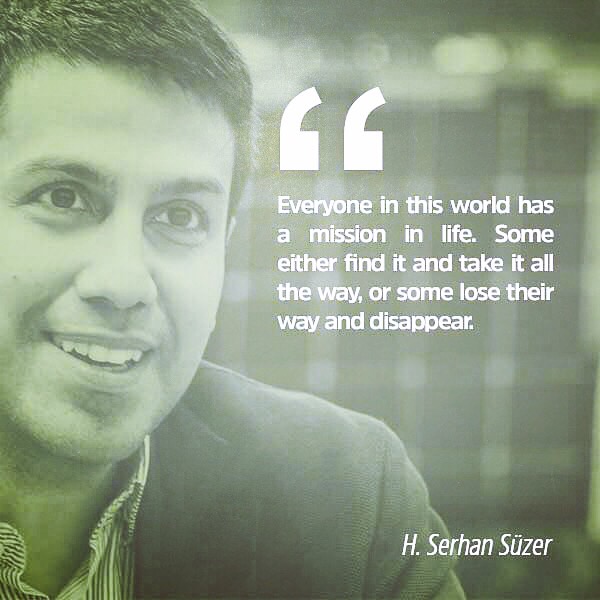Social Entrepreneurship and the violation of red tape

In this piece, I have taken some material from another source which also states that ‘social entrepreneurship’ is actually a beneficial concept for society. However, in our country, as there are many discrepancies of many topics, the applications of social entrepreneurship can sometimes be implemented by some people or firms to unfortunately bring damage than benefit to a social system.
When you have a profession or become self employed, you take place in a specific role. Either you will work in the public or private sector or for a CSO (civil society organisation). Or sometimes you might work in the intersection of both. For example, I know people working in the private industry that do consulting for a public firm. Or I know some social entrepreneurs who work in the private industry which crosses with a CSO.

If I need to talk about this from my perspective, I personally see my role as the honorary consulate of Costa Rica as a public profession and I have been doing the best I can in this role since 2008. And of course, I have signed off on many enterprises in the private sector and those efforts I have put in the CSO, that I am the founder of, on a social scale. I have infact signed off on social enterprises under the CSO I have been working for.
The news economists get us thinking about
As a person who has actively done all this and been a part of many events, when I recently saw an article in the Economist http://www.ekonomist.com.tr/kapak-konusu/sosyal-girisim-onculeri.html
I then decided to write this article. I want to note that I know many of the social entrepreneurs and related people in the list. I am infact one of the first supporters of the Ashoka Foundation, which is one of the biggest supporters of social entrepreneurship in Turkey.

The logo of the Ashoka Foundation
With the strength these references have given for all the work I’ve done, in the Economist article, it introduces many social entrepreneurs who have really made great contributions, but I can also say it mixes in a list of people who have nothing to do with social entrepreneurship. In the future, if they get me angry, I will announce these names and in detail give the reasons why they are far from being social entrepreneurs.
As a matter of fact, I had touched on this too in my blog last week:
http://www.serhansuzer.com/en/sweeping-down-the-front-of-our-own-doors
Before I convey my message and thoughts, as to why I think one of the names given in the Economist doesn’t belong in the social entrepreneurship qualification, I want to reiterate that the social entrepreneurship concept will be beneficial if conducted and identified in the right way. That’s why I’d like to share with you an article of referencing nature regarding social entrepreneurs. You can find the link and the article below outlining the thoughts of 3 experts who know about this topic really well.
You can find it at this link:
http://blog.good4trust.org/post/87489738592/sosyal-giri%C5%9Fimin-lafz%C4%B1-ve-ruhu
The letter and spirit of Social Entrepreneurship
There are three main problems regarding social entrepreneurship: for social entrepreneurship’s to be fully defined, and not to be confused with civil society organisations, ethic and dimensions of money. The founder of the GAYE Institute and the Young Optimist founding member Mrs Eda Bayraktar, the President of the Young Social Entrepreneurs foundation, Mr Erhan Bozkurt and the founder of the Good4Trust.org, Change.org East Europe and West Asia Director Dr Uygar Ozesmi, have come together via zumbara.com and discussed the problems and tried to relay their responses.
EDA BAYRAKTAR, ERHAN BOZKURT, UYGAR OZESMI
In this day and age, we are facing a system trying to destroy the living support units of our planet and creating a social inequality. How lucky that we have ways to solve these problems. With the speed of change our world is going through, new needs are being born with change; new necessities are bringing to life new models. Social networks and the digital age, industrial revolution creativity is transforming our order. It’s bringing new public order and specialist concepts with new view points. Instead of ‘personal gains’, ‘wild competition’, sustainable strategies like ‘win-win’, ‘collaboration’ and ‘synergy’ are being born. People are now looking for meaning in their lives and social knowledge and awareness is on the increase. The existing profit maximisation capitalist system isn’t meeting social requirements and destroying nature. That’s why, not for profit social entrepreneurship alternatives are being born. The existing capitalist system is intensifying strength and sources in the hands of some which is causing a deep inequality. On the other hand, there is an increase in sustainable social and environmental beneficial social entrepreneurship’s to help solve this inequality. Today, the improvements in the area of social entrepreneurship describe how we will live in the future.
In a day when social entrepreneurship’s gain a lot of importance, there are 3 things that inflict difficulty and confuse the minds of society. The first is what social entrepreneurship is, secondly CSO’s and how they are separated with social entrepreneurship’s, and thirdly if earning money in social entrepreneurship’s is ethical or not.
What is a Social Enterprise?
Social entrepreneurship has many different factors from classic entrepreneurship. Entrepreneurship is when an individual or a group bond together to create value, establish a profitable platform and expand, introducing a new product or service into the market. Like this classic entrepreneurship, social entrepreneurship also recognises problems and opportunities, takes risks and finds ways to solve and expand.
The most important difference between them is the commercial entrepreneurship profit; social entrepreneurship being more focused on being a social benefit. Another important difference is, as commercial entrepreneurship entails bringing out imitations of models which are not well received, social entrepreneurship aim is to create a model to be beneficial to society and is a vehicle to be effective and extend their line of work.
Social entrepreneurship aims to be a part of the solution, not the problem, to be able to raise opportunities from problems faced by individuals or groups, to lay foundations to new ideas, to have enough funding for sustainability rather than be profitable, to be a part of or fully involved in society – in short, to be a body who values everything from nature to all of natures species besides just humans. Social entrepreneurship requires responsibility of the whole world. For this reason, social entrepreneurship should be a part of our activities…
Social Enterprises and Civil Society Foundations
Social enterprises and CSO’s find common ground when it comes to solving social problems and eliminating factors that try and destroy nature, however in some of the things they each apply, there are many obvious differences.
When you look at it from a work model, CSO’s generally sustain their growth by donations and grants whereas social enterprises depend on society’s support and donations in order to turnover as sustainability is important for their system. The management system is just as different as their work models. CSO’s are generally more democratic and participative , with a flatter structure whereas social enterprises have a hierarchical structure as they work under dynamic market conditions, which requires taking immediate and fast actions and are open to all structures. Social enterprises can change their management in a very quick manner if the current management system is becoming an obstacle for them; they can restructure the group.
Also it’s important to mention the differences of volunteering and professionalism. For things to run in social enterprises is not dependent on volunteer; quite the opposite, it defines the employment status of the social workers. CSO’s though invest in the possibility of volunteer workers and CSO’s that don’t have volunteer programs are not considered legitimate.
Finally, where they don’t really require rules, generally when CSO’s are being established under foundation and charity laws, social enterprises are established under commercial rules. CSO’s generally try and persuade existing powers, political and legal regulations, they will show examples of their projects using other projects or build their social services on a charitable platform. While social enterprises encourage value add systems to solve economic living and continue to expand, allow for society’s development and widen the dimensions of the social effects, this way triggering social change. On the other hand, social enterprises can economically be sustained, because they practically create their own revenue, and can help contribute to the welfare management of CSO’s that can find it difficult to find their own sources.
Social Enterprises and the ethical level of money making
As the ethical levels of money creates an emotional complexity, it is an an area in social enterprises that is not openly spoken about. Social enterprises can last a couple of months, at the most as a short 2 year project, but in order to create a long term effect, and by itself turnover, amortise (back pay) and to sustain its investment need, it needs to work on a working model. At the establishment stage of social enterprises, it needs donations from people and firms, financial support from public and benefit from tax exemptions from subsidies. However, social enterprises in mid to long term need to create their own revenue, depend on donations and support, and if possible make a profit and use this profit to extend their services. For this reason, social enterprises need to be able to cover their expenses and create revenue to cover their workers.
Where can Social Enterprises obtain their money?
Social enterprises cover their needs by showing changes depending on where their revenue is coming from. The revenue can either come from the efforts of individuals, who enable product sales, from a price paid for a given service, from a service or product distribution system member, or from contribution margins from a service provided. The important thing is the social benefit created has a connection between being open and fair. Even if it’s not preferred, at the beginning, provided it doesn’t exceed limits, they can make revenue from donations and grants.
Can Social Enterprises make a profit?
Social enterprises can make a profit however they need to re-invest this profit back into another social enterprise. If an individual is using the social enterprise to personally enrich himself, then the social enterprise loses its legitimacy. From this perspective, if possible, social enterprises need to be established as ‘not for profit’. It also needs to be paid attention that ‘not for profit’ establishments should restrict themselves from possibly becoming commercial and bringing unwanted sanctions. In order to enable advantages, some may reject these theories. Sometimes for social enterprises for this and other reasons, it may be more appropriate for them to have a normal company status. In these situations, all or some of their shares can be separated as investment shares, the company can form into a defacto ‘not for profit’ structure. Also, groups that are established as normal organisations, can become legitimate with a B Corp or similar certificate. As a result, social enterprises can make profit; however use this profit for society or for natural benefits.
What should the revenue expectations of Social Enterprise establishments and workers be?
The most important factor of success for social enterprises is the skilled social entrepreneur’s ability to be creative, intelligent and hard working and with their efforts reach success and continue with workers who show this effort. However much degrees of talent social enterprises can gather, the more successful they can be. Hence, social enterprises need to cover the costs of workers of the firm or firms, and infact provide a wage and social security. No matter how high level or social their work contributed to natural benefits, social enterprises are not a charity or volunteering agency that does things without return. This approach is shown in CSO’s. However, regarding expenses and given salaries, social enterprises need to be able to answer to this in a clear way. Otherwise the workers cannot sustain an honourable lifestyle and can’t show that they serve at a high level. The most important question at this point is, how their needs and standards are to be defined and what needs to be done.
How must the salaries of the founder and workers be determined?
When ‘not for profit’ workers salaries need to be determined, they observe the companies they are in competition with and try and pull the skilled workers but also insist on not paying high salaries. That’s why the HR division compares their own applications with other organisations. ‘Benchmarking’ in its Turkish meaning practically means comparison, for a group to excel to a better stage, to take direction to the best player in the sector or one that has better applications, to apply its process and practices to itself, and apply adaptability. For this reason, social enterprises must conform itself to workers in the same sector and with organisations who have the same turnover, and apply its high salary scale and social rights to itself. The founders of the enterprise must not be given a higher salary or social rights than a senior manager in a similar organisation. And on the basis that the other workers of the social enterprise don’t earn more than this salary, and only be given what is set on the salary scale. As long as this is enabled, the founder and workers cannot be judged as unethical. If there will be any criticism or interference in this, it will be criticism and interference to the whole sector.
Outcomes and responsibilities
As social enterprises spirit and needs are increasing in the given days, for those joining this, must have tangible distinguished characteristics and base principles which are critical points. It’s important that the groups must be setup as defined above. New parties joining must be clear, be able to give reason, and define and earn a salary according to the rules. If these rules and differences are not paid attention to, we cannot segregate this enterprise from a regular profit making organisation. If we cannot segregate this, social enterprises hiding under masks will benefit from this and lose the positive outlook that people have towards them in society.
And this will slow down the development of social enterprises. In order to contribute acceleration to the social enterprise growth, attention needs to be paid to this segregation and the ethic rules, and also to the social enterprises in the raw materials and service industries, need to be given priority in order to enable the growth of the economy and to strengthen it.
Reference:
Referans:Bayraktar, E., Bozkurt, E., Özesmi, U., 2014. Sosyal Girişimin Lafzı ve Ruhu. Optimist, Girişim, İnovasyon, Yönetim, Yıl: 2, Sayı: 17, İstanbul.
***
Now let’s go over some of the concepts mentioned in this article:
1. “The most important difference is commercial entrepreneurship profit; and social entrepreneurship benefit focus”
The link I shared at the beginning from the Economist had quite a few valuable firms on its list, with some names added that act like they are social benefits but in actual fact are profit focused. Infact in different platforms, they identify themselves as producers of ‘social technology’. Funny isn’t it?
They bring two words together that sound good (social and technology), and convince people that they are writing their own story and creating a social benefit. They say the profit they make is invested in this technology. However, the term ‘social technology’ is nothing but a simple software concept. When they bring out software once (that can be achieved in 1 month with a team), touching up from time to time is sufficient. Therefore, that kind of investment is not required. In actual fact, the profit they make goes straight into their pockets. So there’s actually a profit focused enterprise which actually represent itself as a social benefit society, on top of that, they gain commissions on behalf of this social assistance system.
2. “On the other hand, Social Enterprises that can be economically sustainable, that can create their own revenue, can contribute to CSO’s that have difficulties finding their own revenue sources from commercial enterprises”
For example, being the founding President of TIDER (Basic Needs Association), it has a commercial enterprise. In order to run this commercial enterprise, it has an ‘employment’ certificate from Iskur, which can gain revenue from work placements. And this revenue is kept by the society.
Commercial enterprise also has another commercial facility. TIDER ‘s commercial enterprise is a good example for other social enterprises. It shows activity like a company but because it’s founder is a society, naturally the revenue is used towards social benefit facilities.
3. “Social Enterprises can make a profit however must invest that profit in the same way or to another Social Enterprise. If an individual is using the social enterprise to personally enrich himself, then the social enterprise loses its legitimacy. From this perspective, if possible, social enterprises need to be established as ‘not for profit’.
There are some that don’t comply with this rule, but still present themselves as social enterprises. It’s not enough to show that they are donating a share of their revenues to CSO’s or investing this in social enterprises. They must be investing all the revenue in causes that will be of benefit and can be utilised.
In summary, we are witnessing many enterprises that show themselves as social. For me the social enterprise should not be categorised in this way because the revenue they make is not spent on social benefits. Stories that sound so amazing are just made up to actually cover individuals becoming rich, and unfortunately, this wealth is gained off the back of social assistance systems. Some may categorise this as ‘beyond ethical’ others as ‘benefiting from someone’s rightful share’ or in the class of ‘sin’.
I’d like to add one more point to all this. In the Economist list, there is a firm who represents itself as a social enterprise that removes the main role of CSO’s without making it obvious and continues to carry out its operations with a much more difficult working model. With the intention of making money, it obtains investments from private funds and with its financing strength, crushes CSO’s. Whereas if they wanted to be of benefit, they wouldn’t remove the main roles of CSO’s but instead take on supplementary roles. I can give some very clear examples of this. But in order to keep the peace, I will not mention any names.
I can also say this quite clearly, for someone who comes from the private sector and as an entrepreneur who has signed on successful projects like renewable energy, financial technology (fintech)” Wi-Fi analytics, call centre and software developments, I will do the best I can not to allow these firms who falsely represent themselves as social enterprises to crush CSO’s and cause damage.

For me, balance is very important. All social enterprises need to do is clearly declare all of their financial data and the effects, put forward their revenue streams and advise openly the profit they have made and where it has been invested. I will support all platforms that are formed for this reason.
Of course in the future, I will support the removal of the clumsy management of CSO’s and the ‘B Corp’ structure of the USA, which re-directs revenue towards social benefits and I will do all that I can for this. The ‘B Corp’ corporate identification in Turkey will assist for formality and remove discrepancies and loop holes, and quickly enable dynamic entrepreneurs who want to make social benefits and transformations.
Tag: yaşam









